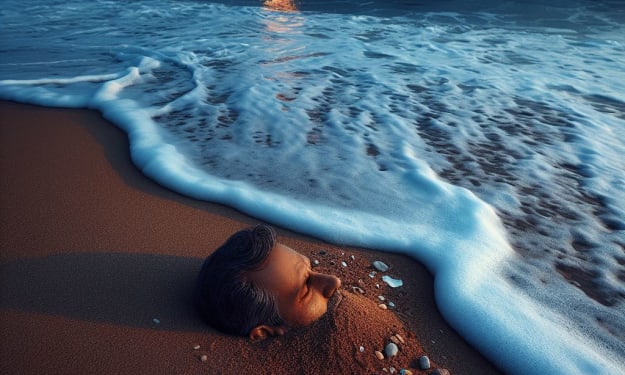The Legend of Atlantis: Separating Fact from Fiction
Examining the Truth Behind the Myth of the Sunken City
The story of Atlantis, a legendary city that sank into the ocean, has captivated people's imaginations for centuries. First described by the ancient Greek philosopher Plato in his dialogues, the story has been retold and embellished in countless books, movies, and TV shows. But is there any truth to the myth of Atlantis, or is it purely a work of fiction?
Plato first mentioned Atlantis in his dialogues "Timaeus" and "Critias", written around 360 BCE. According to his account, Atlantis was an advanced civilization located beyond the "Pillars of Hercules," which are believed to be the modern-day Strait of Gibraltar. The city was said to be home to an extraordinary society, with magnificent architecture, beautiful gardens, and abundant natural resources.
However, according to Plato's account, the Atlanteans eventually became corrupt and arrogant, leading to their downfall. The gods became angry and sent a catastrophic event that caused Atlantis to sink beneath the ocean, never to be seen again.
Plato's story of Atlantis is often dismissed as a myth or allegory, but some people believe that there may be some truth to the story. One theory is that Atlantis was actually a real place, and that it was destroyed by a natural disaster such as a volcanic eruption or earthquake.
Another theory is that the story of Atlantis was inspired by the Minoan civilization, which flourished on the island of Crete from around 2700 BCE to 1450 BCE. The Minoans were known for their advanced culture and sophisticated architecture, and they may have been the inspiration for Plato's account of a utopian society.
Despite the lack of concrete evidence, the search for Atlantis has continued over the years. In the early 20th century, an American named Edgar Cayce claimed to have psychic visions of Atlantis, describing it as a highly advanced civilization that was destroyed by a series of catastrophic events.
More recently, scientists have used advanced technology to explore the ocean floor in search of evidence of a lost city. In 2011, a team of researchers led by archaeologist Richard Freund discovered a series of submerged structures off the coast of southern Spain that they claimed could be the remains of Atlantis. However, their findings have been met with skepticism by other experts in the field.
So, what is the truth about Atlantis? The most likely explanation is that it is purely a work of fiction, created by Plato as a way to explore philosophical concepts such as the nature of power and the dangers of excess. However, the enduring appeal of the story suggests that there is something deeply compelling about the idea of a lost civilization that was destroyed by its own hubris.
In conclusion, the myth of Atlantis has captured the imaginations of people for centuries, and continues to fascinate us today. While there is no concrete evidence to support the existence of the lost city, the story serves as a cautionary tale about the dangers of arrogance and the consequences of abusing power. Whether Atlantis was real or not, it remains a powerful symbol of our fascination with the mysteries of the past and the enduring human desire to explore the unknown.
Additionally, the story of Atlantis has had a significant impact on popular culture, inspiring countless books, movies, and TV shows. From Jules Verne's "Twenty Thousand Leagues Under the Sea" to Disney's "Atlantis: The Lost Empire," the legend of Atlantis has been reimagined in a variety of ways.
Moreover, the story of Atlantis has also sparked the imaginations of many researchers and explorers who have searched for the lost city over the years. While these searches have not yielded any conclusive evidence of Atlantis, they have led to fascinating discoveries about ancient civilizations and the mysteries of the ocean.
One example is the recent discovery of the submerged city of Heracleion off the coast of Egypt, which was a thriving port city in the 6th century BCE before it sank beneath the sea. Like Atlantis, Heracleion was a place of myth and legend until it was rediscovered by archaeologists in the 1990s.
In many ways, the search for Atlantis has become a metaphor for the human quest for knowledge and understanding. While the story may never be proven or disproven, the pursuit of knowledge about our past and the mysteries of the world around us continues to inspire and intrigue us.
In conclusion, whether Atlantis was a real place or simply a work of fiction, its story has had a lasting impact on our culture and our imagination. The legend of Atlantis serves as a reminder of the power of myth and the enduring human fascination with the unknown. As we continue to explore the mysteries of our past and our world, the story of Atlantis will remain a symbol of our quest for knowledge and our desire to uncover the secrets of the past.






Comments
There are no comments for this story
Be the first to respond and start the conversation.